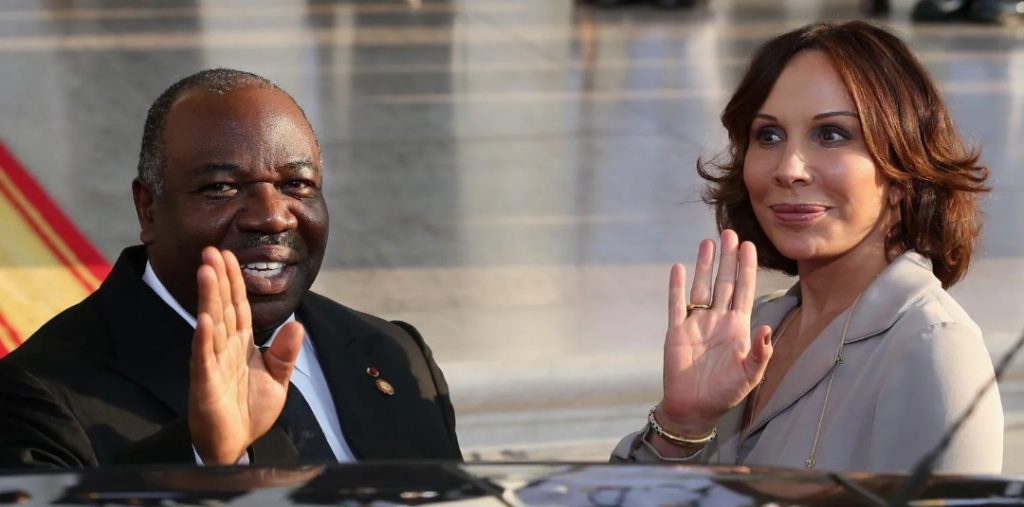
Ofure Akhigbe
The downfall of Gabon’s once-powerful Bongo family deepened on Tuesday night as a court sentenced former First Lady Sylvia Bongo and her son Noureddin Bongo Valentin to 20 years in prison for embezzlement and corruption, marking a dramatic end to one of Africa’s longest-ruling dynasties.
The pair, tried in absentia, were also fined 100 million CFA francs ($177,000; £135,000) each, while Noureddin Bongo was ordered to pay an additional 1.2 trillion CFA francs ($2.1bn; £1.6bn) in damages to the Gabonese state. The Bongos were accused of exploiting the fragile health of former President Ali Bongo Ondimba, who suffered a stroke in 2018, to control state affairs and siphon public funds for personal gain.
Both denied the charges, describing the case as a “legal farce.” Their two-day trial, which began on Monday and ended unusually swiftly the following evening, was criticized by the Bongos as politically motivated and “predetermined in [President Brice Oligui Nguema’s] office a long time ago.”
Ali Bongo, who ruled Gabon for 14 years after succeeding his father Omar Bongo, was ousted in a coup in August 2023 led by Brice Oligui Nguema, now the country’s civilian president. The coup ended over five decades of Bongo family rule, which critics say enriched the clan while many Gabonese citizens lived in poverty.
Following the coup, Sylvia and Noureddin Bongo were detained for 20 months before being released in May 2025 and allowed to travel to London on medical grounds. Ali Bongo, who was placed under house arrest after his overthrow, was later released but has not been charged.
State prosecutor Eddy Minang said the court was “surprised” at the absence of the Bongos during the hearing, as nine of their co-accused — all former presidential allies — appeared in court. The other trials are still ongoing.
Both Sylvia and Noureddin Bongo, who hold French nationality, allege they were tortured by the military during their detention and have filed a case in France, which Gabonese authorities have denied. Noureddin, who served as General Coordinator of Presidential Affairs, was accused of using forged documents bearing Ali Bongo’s seal to divert state funds — a charge he continues to reject.
For the Bongo family, whose influence defined Gabonese politics for more than half a century, Tuesday’s verdict represents a historic reversal. Once untouchable, the Bongos now stand as symbols of a dynasty undone by corruption and political change.
